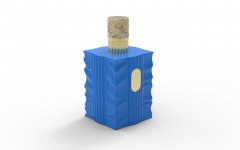1970年国际工业设计协会ICSID(International Council of Societies of Industrial Design) 为工业设计下了一个完整的定义: "工业设计,是一种根据产业状况以决定制作物品之适应特质的创造活动。适应物品特质, 不单指物品的结构, 而是兼顾使用者和生产者双方的观点, 使抽象的概念系统化, 完成统一而具体化的物品形象, 意即著眼于根本的结构与机能间的相互关系, 其根据工业生产的条件扩大了人类环境的局面。" 以下是世界上一些著名设计师对“设计”的看法,“设计”是什么?
设计就是创新。
如果缺少发明,设计就失去价值;如果缺少创造,产品就失去生命。
――刘东利(香港)
设计是追求新的可能。
――武藏野(日本)
设计就是文化
纷乱与混沌掩盖着秩序,彷徨与矛盾孕育着机会,忧虑与理想蕴藏着哲学,思想与探索需要观念的更新和方法机制的科学。伊甸的宁静被破坏了,南天门中闯入了孙悟空,然而追求实现理想的工业设计师们应投身到这个大潮中,在这个不可回避的“存在”之中既要思考,也要实践,这样才是我们的职责所在。
――柳冠中(中国工业设计协会副理事长)
设计就是经济效益
面临世界贸易全球化发展,如果缺少工业设计在工业产品领域中的必要作用,中国的经济损失是不可估量的。
――林衍堂(香港理工大学设计系副主任)
设计就是协同
作为设计师本身,更重要的是具备自身的素质和知识结构及群体设计意识,也就是用立体知识结构与相邻科学协同设计研究的意识。
――俞军海(蜻蜓工业设计公司总经理)
工业设计是满足人类物质需求和心理欲望的富于想象力的开发活动。设计不是个人的表现,设计师的任务不是保持现状,而是设法改变它。
――亚瑟. 普洛斯(ICSID前主席)
"If I could compare the process of design to publishing a novel, design would be the story and language which could not stand alone without pages, print or binding to make it whole and useable. Danielle Steele, Defoe or Descartes . . . your choice."
――Darrel. Staley, FIDSA, Manager of Corporate Industrial Design, Ampex Corp.
"Industrial design is the process of developing an elegant and functional improvement to the physical interface between man and machine-made products."
――Robert Glenn Smith, FIDSA.
"Design thinking is what separates humans from animals! Designers are trained to make things work and look better. They team with manufacturers, marketers, advertisers and end-users toturn unspoken desires into consumer demand with a rare blend of beauty and utility that improve our lives."
――Tucker Viemeister, IDSA, Vice President of Smart Design.
"The process of designing products is a multi-faceted balancing act. It requires a synthesis of disciplines and a reconciliation of constraints. This requires creative pragmatism. The end result is a completed product that looks great, operates as the user wants and expects and is manufactured for the right price."
――Malcolm S. Smith, IDSA, Vice President of Palo Alto
"Designers are not highly paid cake decorators. They are gurus of cross-functional problem solving. Great design solutions are a seamless blend of technical, financial, emotional and brand naming issues. Industrial designers can marry the disparate points of view that effect a product's performance in the marketplace and create solutions to exceed expectations -- corporate and consumer."
――Spencer Murrell, Vice President, Fitch Inc.
"The design process, at its best, integrates the aspirations of art, science and culture."
――Jeff Smith, IDSA, President of Lunar Design
ID Define(工业设计定义)
Industrial design is the professional service of creating and developing concepts and specifications that optimize the function, value and appearance of products and systems for the mutual benefit of both user and manufacturer.
Industrial designers develop these concepts and specifications through collection, analysis and synthesis of data guided by the special requirements of the client or manufacturer. They are trained to prepare clear and concise recommendations through drawings, models and verbal descriptions. Industrial design services are often provided within the context of cooperative working relationships with other members of a development group. Typical groups include management, marketing, engineering and manufacturing specialists. The Industrial designer expresses concepts that embody all relevant design criteria determined by the group. The industrial designer's unique contribution places emphasis on those aspects of the product or system that relate most directly to human characteristics, needs and interests. This contribution requires specialized understanding of visual, tactile, safety and convenience criteria, with concern for the user. Education and experience in anticipating psychological, physiological and sociological factors that influence and are perceived by the user are essential industrial design resources. Industrial designers also maintain a practical concern for technical processes and requirements for manufacture; marketing opportunities and economic constraints; and distribution sales and servicing processes. They work to ensure that design recommendations use materials and technology effectively, and comply with all legal and regulatory requirements. In addition to supplying concepts for products and systems, Industrial designers are often retained for consultation on a variety of problems that have to do with a client's image. Such assignments include product and organization identity systems, development of communication systems, interior space planning and exhibit design, advertising devices and packaging and other related services. Their expertise is sought in a wide variety of administrative arenas to assist in developing industrial standards, regulatory guidelines and quality control procedures to improve manufacturing operations and products. Industrial designers, as professionals, are guided by their awareness of obligations to fulfill contractual responsibilities to clients, to protect the public safety and well-being, to respect the environment and to observe ethical business practice.
――IDSA


